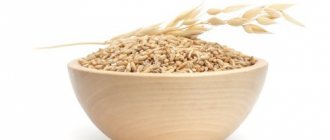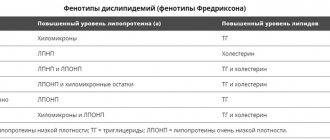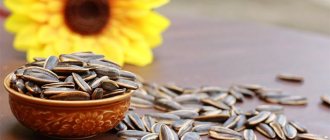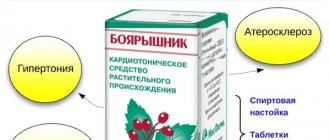Squid meat is an alternative product to such seafood as shrimp and lobsters.
The pricing policy for squid is in the middle segment, so most people can afford to buy squid.
Its meat can be used to prepare excellent appetizers for the holiday table and a wide variety of culinary dishes.
Recently, there has been a trend towards using seafood as food, which is one of the signs of proper nutrition. Not all fresh seafood can be purchased in our stores without fear for their quality.
Squid is sold in stores all year round and comes not only frozen, but also chilled.
Squid meat does not contain carbohydrates, so it is classified as a dietary product and is recommended for use in cases of high cholesterol and obesity to reduce body weight.
Squid meat has no carbohydrates
Carcass calorie content
Squid contains a high percentage of protein, and a raw squid carcass weighing 100.0 grams contains 90 calories.
If you boil the meat of this shellfish, then 100.0 grams of boiled meat will contain 110.0 calories.
In fried meat, the calorie content increases to 175 calories per 100.0 grams.
Smoked squid has 242 calories per 100.0 grams of product;
Dried squid carcasses contain 263 calories in 100.0 grams of product.
If you consume shellfish in fried, smoked and dried form, then this risks overweight and an increased cholesterol index.
| Protein compounds, gram | Fats, grams | Carbohydrate compounds, grams | Ash, gram | Water, gram |
| 18 | 2.2 | 2 | 1.4 | 76.5 |
| Components | Availability in percentage |
| Iodine molecules | 2 |
| Copper ions | 1.5 |
| Cobalt molecules | 9.5 |
| Magnesium mineral | 0.225 |
| Manganese | 0.085 |
| Thiamine | 0.12 |
| Potassium molecules | 0.112 |
| Phosphorus | 0.313 |
| Vitamin E | 0.147 |
The benefits of seafood
Vitamin and mineral composition
Squid contains taurine, which prevents an increase in the cholesterol index after consuming this product.
In addition to taurine, which lowers the cholesterol index in plasma blood and improves the condition of the vascular membranes, squid contains useful components:
- Cobalt, which contributes to the body's absorption of carbon molecules, and also monitors and adjusts the glucose index in the body. Cobalt helps pancreas function;
- The mineral iodine has a positive effect on the activity of the brain matter and also helps improve memory;
- Molybdenum, when present in sufficient quantities in the body, can improve the structure and composition of plasma blood, which leads to normal indicators of the structure of blood composition;
- Iron molecules assist B vitamins in their complete absorption by the body;
- Copper in the body produces the hormone endorphin, and squid helps produce this hormone;
- Selenium in the product enhances the activity of the immune system, and also normalizes the functioning of the reproductive system and stops the inflammatory process of articular arthritis;
- The content of magnesium molecules in squid contributes to the normal functioning of the heart organ and blood flow system. Magnesium also controls the balance of cholesterol molecules in the body, and helps increase the fraction of good cholesterol by reducing the fraction of harmful lipids;
- Calcium and magnesium prevent bone fragility and are building elements in the human skeleton;
- Phosphorus activates the activity of brain cells;
- Zinc and magnesium contribute to the normal functioning of the digestive system.
Vitamins A, D, E and B vitamins (B1, B2, B3, B6, and B9) in squid help absorb calcium and prevent brittleness of nails and bones, and also improve the functioning of the visual organ and the condition of the skin.
Omega-3 polyunsaturated fatty acids, as well as Omega-6 and 9 acids, are a unique natural antioxidant that counteracts the aging of the human body and also resists the formation of malignant oncological tumors.
These acids contain aspartic and glutamic acids.
Omega-3 acid and Omega-6 and Omega-9 acid:
- Helps strengthen arterial membranes;
- Prevents the development of pathologies of the heart organ;
- They resist the development of pathologies of the blood flow system, including systemic atherosclerosis.
Nutritional value of squid
For men
Squids are also beneficial for the male body. Due to the high concentration of protein, the systematic inclusion of dishes from these products in the menu helps the stronger sex build muscle mass without adding excess fat.
Taurine contained in seafood replenishes energy deficiency, normalizes psychological background, and fights bad mood and drowsiness.
Antioxidants help fight free radicals, cleansing the body of harmful substances, and reduce the risk of developing stomach and intestinal diseases.
The potassium present in the product helps strengthen the cardiovascular system and increase endurance. And the content of zinc and selenium has a beneficial effect on the reproductive functions of men - it improves potency and increases sperm activity.
Attention! Boiled squid has the above qualities to a greater extent. You should be careful when consuming fried products, and it is better to avoid dried ones altogether. Protein food makes a man stronger.
How much cholesterol is in squid and what are its beneficial properties?
Squids contain 95.0 milligrams of cholesterol per 100.0 grams of product, but they can be consumed with high cholesterol, thanks to other components in the composition that counteract the increase in the cholesterol index in human plasma blood.
Omega-3, 6, and 9 polyunsaturated fatty acids.
The composition of this product prevents the absorption of cholesterol from it by the small intestine. Omega PUFAs prevent the formation of atherosclerotic tumors in the main arteries.
In case of endocrine pathology, diabetes mellitus, consumption of the meat of this shellfish helps to improve blood microcirculation in the periphery (including in the cerebral vessels and in the arteries of the lower extremities).
Strengthening peripheral arteries and fibers of the nervous system, prevents the development of peripheral neuropathy, as well as diabetic-type antipathies.
Squid is rich in B vitamins..
This vitamin group helps strengthen nerve fibers and improves the functioning of the immune system.
B vitamins also improve cerebral circulation, which has a beneficial effect on the activity of brain centers - memory improves, a person’s intelligence index increases, and prevents the development of dementia.
When squid meat is used for food, metabolic processes - lipid, protein and carbohydrate - return to normal, which contributes to better functionality of the heart organ and blood flow system.
The blood pressure index decreases, the blood sugar level returns to normal, and vitamin B3 reduces the index of cholesterol molecules and cleanses the blood flow of atherosclerotic deposits, improving blood circulation in the main arteries and in the capillaries of the peripheral sphere.
Vitamin B2 improves the functioning of the visual organ with concomitant diabetes mellitus of both types, and also promotes the healing of trophic ulcers in diabetes mellitus and systemic atherosclerosis.
Vitamins A, E and C.
They help lower the glucose index in the blood and also have a beneficial effect on the blood flow system.
This group of vitamins enhances the functioning of the immune system, neutralizes the activity of free radical molecules in the body, which stops the aging of body cells.
Vitamins help cell regeneration, which promotes rapid healing of wounds with impaired blood flow, especially in the periphery of the system.
They help the functioning of the visual organ, and also strengthen the endothelium of the arterial and capillary membranes, which resists the rupture of the walls of blood vessels and the formation of new capillaries.
This complex of vitamins lowers the cholesterol index and also protects the body from malignant oncological tumors.
Taurine in squid.
Helps lower the blood pressure index, as well as strengthen myocardial cells, which prevents the development of cardiac pathologies that can result in fatal myocardial infarction.
Taurine prevents the development of cataracts of the visual organ and also improves its functioning. Taurine also helps restore the activity of cerebral arteries.
Cobalt in squid.
Normalizes the functioning of endocrine organs and pancreas.
A component in squid meat is iodine.
It also promotes the normal functioning of the endocrine system and activates the functioning of the thyroid gland. Iodine is also of great importance in the functioning of brain cells, which improves a person’s intellectual abilities and improves the quality of memory.
Iodine resists the development of dementia pathology. This component also enhances the immune system.
Iron.
As part of the mollusk, it prevents the development of anemia in humans and increases the production of hemoglobin.
Rare component in food - molybdenum.
It is able to help the body absorb polyunsaturated fatty acids Omega-3, 6, 9. Molybdenum is a natural aphrodisiac that increases potency in the male body and increases libido in women. Molybdenum also lowers the bad cholesterol index and normalizes the sugar level in the body.
Only thanks to such beneficial properties, squid, with a high content of cholesterol molecules in its composition, is not only not prohibited in case of hypercholesterolemia, but is also recommended for systematic inclusion in the menu.
Eating 100.0 grams of squid 2 times a week can affect the adjustment of cholesterol, lowering its index.
What are the benefits of seafood?
People often refuse to eat crustaceans because patients are afraid of the slightly increased cholesterol content in shrimp. These crustaceans have a balanced composition of vitamins and minerals, the effect of which has a beneficial effect on the organs and reduces its level. At the same time, the blood is saturated with vitamin complexes and beneficial amino acids. The cholesterol in squid is much lower than in some ocean foods. Comparative table of cholesterol content:
| Type of seafood | Cholesterol (mg/100g) |
| Lobsters | 90 |
| Mussels | 65 |
| Red caviar | 310—400 |
| Mussels | 65 |
| Shrimps | 150—190 |
| Squid | 85—90 |
| Lobster | 85 |
| Oysters | 175 |
| Halibut | 60 |
| Pollock and cod | 55 |
| Salmon and chum salmon | 75 |
Effect of good and bad cholesterol in the body
The body contains lipid compounds called good and bad cholesterol.
The type of lipid compound depends on the structure of the molecule and the presence of protein in it.
Lipoprotein molecules in the body perform the main function of transporting fat throughout the body. Cholesterol plays an important role in the body.
Takes part in many processes:
- Participates in the construction of the cell membrane, and also strengthens the cell membrane, prevents protein compounds from crystallizing in the walls of the membrane;
- Lipid molecules take part in the production of bile acids;
- Without cholesterol, vitamin D and sex hormones are not produced;
- The properties of cholesterol are to bind between neuronal cells in the spinal cord and in the brain;
- Lipoproteins are found in the sheaths of nerve fibers.
Harm to the body from low-density lipoprotein molecules:
- The molecules rupture, and cholesterol flakes settle on the arterial endothelium, forming an atherosclerotic layer;
- They cause disruption of blood flow in the system;
- In the gallbladder, when there is an excess of bad lipids, stones form.
Pathologies that are caused by a high index of bad cholesterol:
- Pathologies of the cardiac organ - unstable angina, as well as tachycardia and arrhythmia;
- Systemic pathology: hypertension;
- Systemic atherosclerosis or thrombosis;
- Myocardial infarction and cerebral stroke;
- Decreased intelligence and memory;
- Gallstones and inflammation of the bile ducts.
The benefits of boiled squid
Why is cholesterol needed?
This substance is needed to maintain the stability of the cell wall during temperature changes, as well as the production of bile acids (participate in the processes of food digestion), vitamin D and steroid hormones:
- Cortisol is produced in response to stress (any non-specific reaction of the body to an irritant), activating the body's defenses.
- Aldosterone – regulates water and electrolyte balance.
- Estrogen - in addition to regulating monthly female cycles, has a role in regulating the anti-sclerotic system, lowering LDL levels and increasing HDL.
Estrogens have a protective role against the development of atherosclerosis
- Progesterone is the main hormone in the female reproductive system, responsible for the onset and maintenance of pregnancy.
- Testosterone - in addition to sexual function and mood regulation in men, is responsible for the growth of muscles and bones.
Who is prohibited from using it as food?
Squid is one of the seafoods that does not increase the cholesterol index. Lobsters and shrimp increase the cholesterol index, so in case of hypercholesterolemia they should be excluded from the menu, or their consumption should be limited.
Squids with high cholesterol do not need to be limited - consuming 100.0 grams of the product twice or thrice a week, which will help reduce blood lipids. But there is a category of patients who are prohibited from eating squid meat.
There may be various reasons for this:
- Allergy to fish and seafood;
- Small children up to one year from birth. For older children, only with the permission of the children's doctor;
- Women who are breastfeeding their babies;
- Patients who are prescribed a strict diet;
- For pathologies of the urinary organ and urinary tract in the acute stage;
- Patients with grade 3 obesity.
If you have a high cholesterol index for eating squid carcasses, you must adhere to the following rules:
- Consume only high-quality shellfish meat;
- Consumption should be limited in volume - no more than 100.0 grams at a time;
- Do not consume the product fried or smoked;
- Without the use of sauces in the dish, which can increase the cholesterol index.
For small children
Very high cholesterol
Pregnant women
The role of nutrition in maintaining lipoprotein concentrations in the blood
Blood cholesterol levels depend on the quality of food consumed
It is very difficult to influence the internal synthesis of cholesterol, but it is possible to regulate lipoproteins that enter the body with food. It should be borne in mind that the level of the substance depends not only on the quantitative, but also on the qualitative indicator of fat.
Products that supply “good” fats: pistachios, almonds, sesame seeds and oil, cashew nuts, avocados. These foods do not raise LDL, but they can help fight unhealthy fats.
There is also a group of polyunsaturated fats that do not harm the body. They are not produced through internal synthesis, but come from outside with certain foods, such as corn oil, pumpkin seeds or sunflower seeds.
Polyunsaturated fats are more difficult to digest, easily increase cholesterol levels, and are found in beef, pork, palm oil, coconut oil, cream, butter, whole milk, sour cream, and ice cream. This food should be consumed in limited quantities.
Trans fats are the most dangerous substances for the body, increasing levels of bad cholesterol and reducing the concentration of good cholesterol. They are found in some confectionery products, solid oils, margarine, processed foods and other foods.
How to choose quality carcasses?
Some tips for people who want to learn how to choose a quality product - squid carcasses:
- Squid has a purple tint, or gray-pink color;
- The skin of the mollusk has a shiny color and a dense structure;
- The smell of squid is distinctly marine;
- The product should feel slippery to the touch, but not slimy.
In order to be 100.0% sure of the quality of the product, you need to ask the seller for a certificate of quality conformity for this product, and also not buy squid meat in spontaneous markets.
It must be remembered that the benefits for the body only from high-quality squid, as well as proper consumption and preparation of the product, play a significant role in adjusting the cholesterol index.
Is it possible to eat squid if you have high cholesterol?
Any product, even the healthiest one, can become harmful to the body if not prepared correctly. Tender squid meat can also be spoiled if the cooking rules are not followed.
With an increased cholesterol index and diabetes mellitus pathology, it is best to boil the carcasses in slightly salted water, or grill them, for maximum preservation of the beneficial components in its composition.
Frying this shellfish increases its calorie content by almost 2 times, and a large amount of toxins and carcinogens appears in the product, which is not allowed if the cholesterol index is high.
Fried squid is harmful.
Squid meat must be properly cleaned before cooking. After defrosting, pour boiling water over the carcass for one minute, and then quickly transfer it to ice water.
The squid skin from this procedure is quickly separated from the meat. After this, all that remains is to remove the insides from the carcass and you can start cooking it.
You need to cook the squid meat after boiling the water with it for no more than 10 seconds, lowering it into boiling water. If you cook longer, then the meat will be tough and will have no culinary value.
All beneficial active components will be lost, and the squid will not be able to take part in adjusting the cholesterol index.
Contraindications
Ready-to-eat Peruvian squid meat
It is not recommended to eat seafood if a person is sensitive to iodine, otherwise an allergic reaction and even anaphylactic shock may occur. Women in the last stages of pregnancy and breastfeeding mothers should eat squid with special caution; they should not do this without first consulting a doctor.
You should not eat a lot of dried or smoked meat, since salty foods lead to dehydration of the body, which will especially negatively affect people with problem kidneys and joints with mineral deposits.











